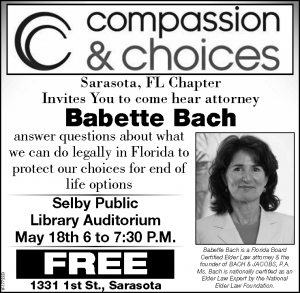The Florida Electronic Wills Act, which the legislature intended to take effect on July 1st, 2017, was vetoed on June 26th by Florida’s Governor. This Act would have allowed remote technology to assist in the witnessing and notarization of Wills. It also included the specification that electronic Wills of residents and non-residents may be probated in Florida. The Governor stated that his reasons for the veto were that the Act would have displaced safeguards against fraud and would overly burden the court system in Florida. He also urged legislatures to address the issues that he identified and create improved legislation that would solve these problems.
If you need assistance in developing a Will or with any other Estate Planning matters, please contact our office at 941-906-1231 to schedule an appointment with one of our attorneys.



